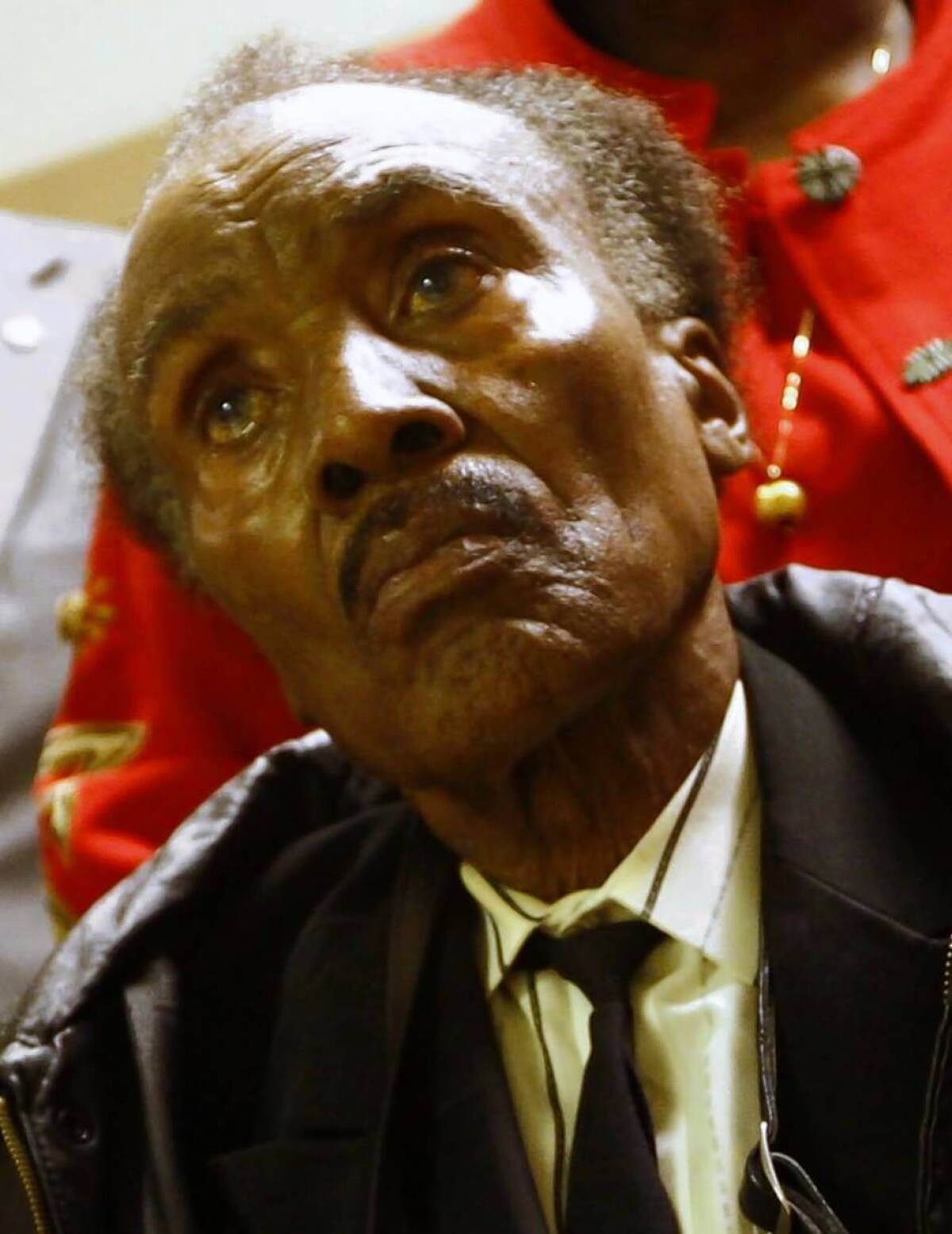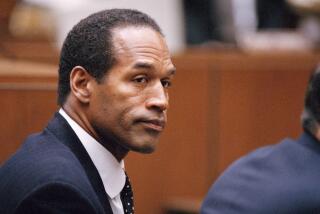Willie Louis dies at 76; witness to 1955 murder of Emmett Till

Willie Louis, a witness to the murder of Emmett Till who testified in court in the case that opened the nation’s eyes to the dangerous discrimination facing African Americans in the 1950s, died of intestinal bleeding July 18 at a hospital in a Chicago suburb, his family said. He was 76.
After the trial, fearing for his life in the South, Louis fled to Chicago, changed his name and slipped out of the public eye for nearly 50 years.
Louis was born June 14, 1937, in Greenwood, Miss., and lived with his grandparents, who worked as sharecroppers, said his wife, Juliet.
On Aug. 28, 1955, the 14-year-old Till, who was visiting Mississippi from Chicago, was murdered after he allegedly whistled at a white woman. On that day, Louis, then known as Willie Reed, noticed two white men driving a truck into a barn with two black males in the back.
He was standing with an older woman near a well when he heard a male screaming for his life inside the barn, his wife said.
“He heard all this hollering and screaming until there was no more hollering and screaming,” she said.
Later that day, a white man approached Louis with a gun, Juliet Louis said. “He said, ‘Boy, did you see anything?’ And he said ‘no.’ He said, ‘Did you hear anything?’ He said ‘no.’”
The next morning he found out that Till’s lynched body had been dumped in the Tallahatchie River.
Louis’ grandfather told him he shouldn’t tell anyone because it was too dangerous to accuse a white man of murder, but a few days later civil rights leaders asked him about what he may have seen, his wife said.
“He said he couldn’t have lived with it; he had to tell them what he saw,” she said.
Louis agreed to testify in court, and a local black doctor hid him until the trial started later that year. Despite his testimony, the two white men accused of the murder were acquitted by an all-white jury.
After the trial, Louis took a train to Chicago, where he changed his name. The psychological stress of witnessing a murder and testifying in court took a toll, causing him to suffer a nervous breakdown that landed him in a hospital, his wife said.
Till’s family lost touch with Louis soon after the trial, Till’s relative Wheeler Parker said.
“We thought something had happened to him,” Parker said. “We thought someone killed him.”
In the late 1950s, Louis became an orderly at Woodlawn Hospital in Chicago and later at Jackson Park Hospital. He retired in 2006.
Louis met his future wife in 1971 at Jackson Park Hospital. She was working as a nursing aide in the intensive care unit when Louis came to pick up a patient.
The couple married in 1976, but it would be eight more years before Juliet Louis discovered her husband was a witness in the Till case, she said. Even after she found out, “he didn’t talk about it much.”
That changed when a journalist, Stanley Nelson, came to Louis’ home in Chicago asking him to participate in his research project about the murder.
“Stanley started having him bring back memories,” his wife said. “It opened up a wound.”
Nelson’s research turned into a book and a documentary, which eventually aired on PBS. Nelson introduced Louis to Till’s mother. Soon after, Louis began talking about what he witnessed publicly at community events and in a 2004 “60 Minutes” interview.
Those close to him hope his legacy will last beyond his death.
“I think his story needs to be told over and over again,” Parker said. “He’s a great role model in doing what’s right.”
Besides his wife, Louis’ survivors include a stepson, seven grandchildren and 21 great-grandchildren.
More to Read
Start your day right
Sign up for Essential California for the L.A. Times biggest news, features and recommendations in your inbox six days a week.
You may occasionally receive promotional content from the Los Angeles Times.






